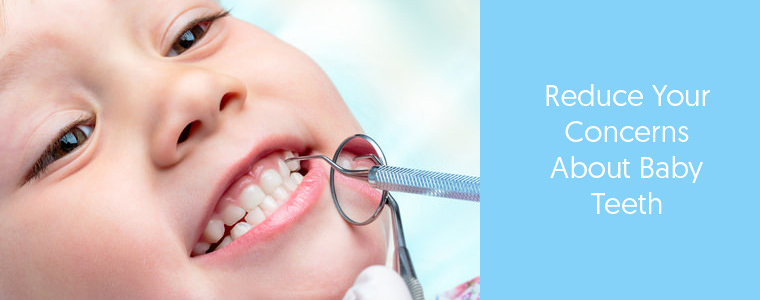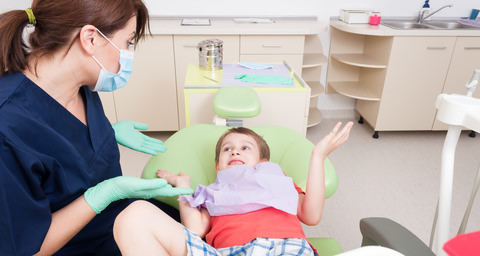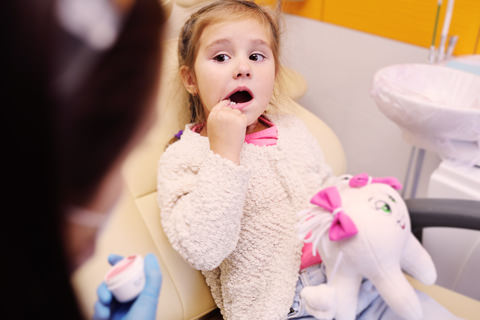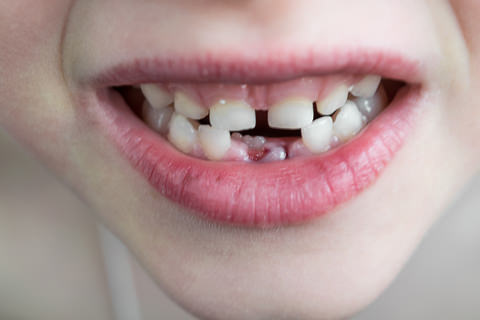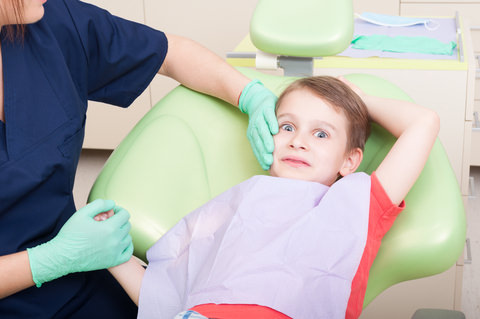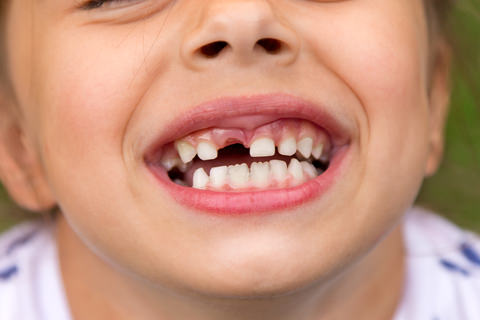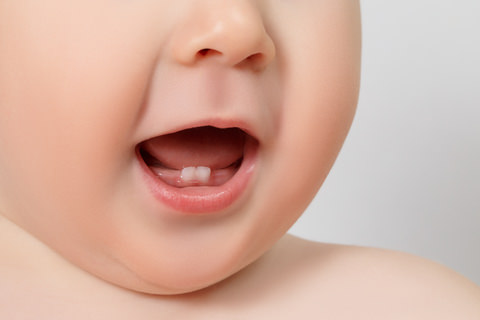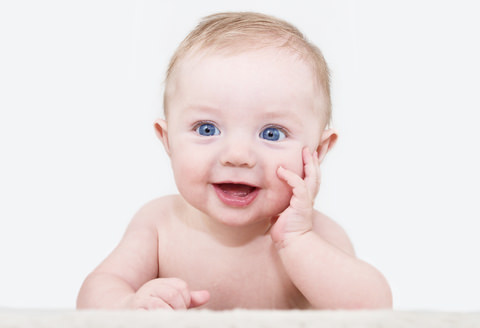Baby Teeth Not Falling Out – Should I be Worried?
It isn’t uncommon for parents to be concerned about their child’s primary teeth not falling out.
So, is there cause for worry if your child’s baby teeth don’t fall out?
The answer is both, yes and no.
Yes, because there could be something in your child’s gums that might want out, which might result in pain and discomfort.
And no, because there are several cases where the permanent teeth that are meant to replace the baby teeth don’t develop naturally.
In that case, it is essential that those baby teeth stay in place.
There are several reasons why baby teeth don’t fall out, which we shall discuss below.
Causes of Late Tooth Loss
A child usually replaces all their baby teeth with adult teeth by the age of 12.
But this isn’t necessarily always the case, and the timeline can extend by a year or two, without it being a major concern.
Slow Development of Adult Teeth
The late loss is usually because the permanent teeth under the baby teeth haven’t fully developed to begin pushing the baby teeth out.
Permanent teeth already have roots in the baby’s gums at birth, and they take time to grow.
However, baby teeth develop faster at that stage than permanent ones.
The speed of teeth development is the same for both sets of teeth, but permanent teeth take longer to develop since they hold roots later during their fetal stage.
Teeth grow until they touch, and because a baby’s jaw is much smaller than an adult’s, baby teeth are smaller in size and fewer in number (20).
The smaller teeth fill the jaw completely and stop growing.
They get pushed out only when permanent teeth grow enough to start pushing the baby teeth out.
A child’s teeth start falling out by the age of 5 or 6.
But it is not uncommon to see them fall at the early age of 4 or as late as 7!
No Development of Adult Teeth
It is also common to see adult teeth fail to develop in a child’s gums.
There are several reasons why this can happen, ranging from a simple failure to hold roots to some dental diseases.
It might even be because of genetics.
Retention of baby teeth usually run in families and has been reported to be slightly more common in women than men.
If the stem cells of a tooth fail to hold root in the beginning, it might lead to the adult teeth being completely missing under the baby teeth.
This will cause the baby teeth to stay indefinitely unless pulled out.
This problem is most familiar with a mandibular second premolar.
Remember, you should never jump to this conclusion without a professional opinion as it might prove harmful for your child.
If there is an adult tooth trapped under the baby teeth, it could cause overcrowding.
It may not only hurt the child but also cause the tooth to grow irregularly.
You should consult a dentist if by the age of 13, your child hasn’t lost one or more baby teeth, or if they complain about any jaw or mouth pain.
The most common way to know for sure about an underlying permanent tooth is by taking an X-ray.
This will show if there is any form of development in the gums or not.
If not, the baby tooth will not be a problem and stay there indefinitely.
Crowding Of Teeth
Dental crowding is one of the more common reasons why baby teeth don’t grow out.
It is a hereditary condition that occurs when there is not enough space for teeth to properly fit within the mouth.
Primary teeth, or baby teeth, are responsible for the proper shape and growth of a child’s mouth.
If the primary teeth grow late or drop out early, it might cause the jaw not to expand enough to make room for all the teeth.
As crowding occurs, permanent teeth find little to no space to come out straight.
Thus, instead of pushing the baby teeth out and coming in its place, they find some other way out.
Potential Issues with Baby Teeth Not Falling Out
Although baby teeth don’t cause much of a problem if left in, people usually have an “aesthetic” problem with them.
A smaller tooth in the middle of larger teeth, especially if the concerned teeth are the front incisors can cause emotional stress.
Leaving the smaller tooth in may also affect the person’s bite and jaw structure, causing undue inconvenience and hardship.
Another problem that dentists are usually concerned about is that these baby teeth can still potentially fall out after reaching adulthood.
Perhaps not because of the permanent tooth finally taking roots, but because they have very shallow roots, and are generally not very secure in the mouth.
The lost baby tooth might end up leaving a gap in the person’s jaw, affecting the jaw’s alignment.
Other adult teeth will try to fill that gap, ending up crooked and out of place.
If your retained baby tooth doesn’t look strong enough to be able to hold its position, your dentist may recommend removing it and having it replaced.
However, this is a rarity.
Many adults with retained baby teeth have healthy and functioning teeth.
Along with the adult teeth, they only differ in size, shape and maybe structure.
To rectify that, people often choose to go with dental bonding.
Dental bonding is a procedure in which tooth-coloured resin is used to restore a tooth to its original state.
It’s then cauterised with a special light that bonds the material to your tooth.
This is usually used to heal chipped teeth or align your teeth properly.
What to do When Baby Teeth Don’t Fall Out?
As parents, even the slightest hint of your child not following the recommended health guidelines can make you concerned and want to do something about it.
But a baby tooth not falling out is a scenario where it is best you don’t do anything yourself and seek professional help.
The one thing you can do, however, is to perform a quick check to decide whether it’s time to call your dentist or not.
You should see if your baby tooth is loose or not.
If it is, you should have the child wriggle the tooth for a week or two.
If it still doesn’t fall off, there might be some other problem, and you should consider taking your child to the dentist.
Your dentist will be able to do an X-ray and find out if there is a permanent tooth waiting or not.
Will the Baby Teeth Eventually Fall Out?
Several factors have a say in whether your child’s teeth will fall out or not.
Late Blooming Teeth
If the permanent teeth under the baby teeth are late bloomers, the baby teeth might eventually fall out by themselves.
You can make sure that this is the case with the help of your dentist.
No Permanent Teeth
If via X-ray, you have determined that there are no permanent teeth under your child’s baby tooth, then it won’t fall out.
People have left them in, in case of trauma or any other disease.
Why do We Have Only Two Sets of Teeth?
A very common question among dental patients is why we have only two sets of teeth?
The baby teeth and our second, permanent teeth.
Sharks have an infinite number of teeth and therefore aren’t concerned with their teeth falling off or new ones not replacing them.
This characteristic is known as polyphyodont.
Mammals usually have only two sets of teeth, which makes us diphyodont.
One, the temporary baby teeth and the other the permanent, adult teeth.
Baby teeth are important and play a vital role in helping our jaw shape itself, expand, and get ready for adult teeth.
Other benefits of baby teeth are:
- They help us in learning how to eat.
- Help us learn how to speak.
- Act as a trial so that we can learn how to take care of our permanent teeth, the ones we can’t afford to lose.
As our jaw grows, where our baby teeth used to be snug and tight, now loosen up and get some wriggle room.
This wriggle room acts as a trigger for the permanent teeth to start pushing the primary teeth out.
This growth results in gaps between children’s teeth.
Our permanent teeth grow with the intention to stay and keep growing until they fill our jaw and there is no more room to grow.
Along with growing sideways, permanent teeth also grow downwards and hold our jawbone firmly to stay in position.
Remedies for No Permanent Teeth
The problem of permanent teeth not developing in children’s gums has gained the attention of many scientists.
This is especially true as more and more adults still have their baby tooth intact.
Extensive research has been conducted in the dental field to grow new teeth, instead of replacing them.
There are several methods of doing so, which include:
- Animal stem cell regeneration using a specific animal gene
- Root canal therapy
- Electrical treatment for repair and recovery through remineralisation
- Therapeutic biomaterial
These methods are still in the development phase.
Children today might not see it, but in a few years, promising solutions might be available in the dental market.
Introduction of this technology can help dentists replace the baby teeth with real teeth, instead of dental replacements.
Conclusion
It often takes some time for baby teeth to start falling out but once they start, it takes years to stop.
Many children get bothered by their baby teeth falling out, but there are some who enjoy it.
It is normal for baby teeth to be delayed, but they do eventually fall without requiring any additional help.
However, if they don’t, there is nothing to worry about.
There are a lot of videos out there of children enjoying pulling their tooth out with the assistance of their mum or dad.
Using a doorknob to pull a loose tooth is something that children find fascinating.
It is, however, best practice to see your dentist first, even if you remember using the doorknob yourself at a younger age.
A simple visit to your dentist can help you determine if there is something you should concern yourself with or not.
By Dr. V
Created at October 30, 2018, Updated at January 25, 2025


